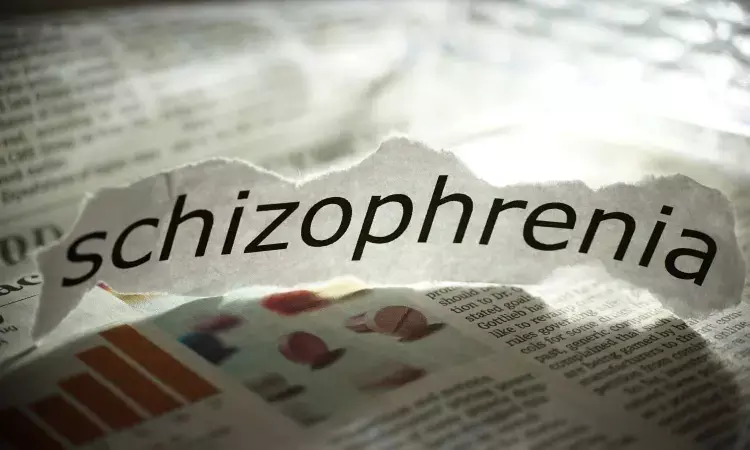- Home
- Medical news & Guidelines
- Anesthesiology
- Cardiology and CTVS
- Critical Care
- Dentistry
- Dermatology
- Diabetes and Endocrinology
- ENT
- Gastroenterology
- Medicine
- Nephrology
- Neurology
- Obstretics-Gynaecology
- Oncology
- Ophthalmology
- Orthopaedics
- Pediatrics-Neonatology
- Psychiatry
- Pulmonology
- Radiology
- Surgery
- Urology
- Laboratory Medicine
- Diet
- Nursing
- Paramedical
- Physiotherapy
- Health news
- Fact Check
- Bone Health Fact Check
- Brain Health Fact Check
- Cancer Related Fact Check
- Child Care Fact Check
- Dental and oral health fact check
- Diabetes and metabolic health fact check
- Diet and Nutrition Fact Check
- Eye and ENT Care Fact Check
- Fitness fact check
- Gut health fact check
- Heart health fact check
- Kidney health fact check
- Medical education fact check
- Men's health fact check
- Respiratory fact check
- Skin and hair care fact check
- Vaccine and Immunization fact check
- Women's health fact check
- AYUSH
- State News
- Andaman and Nicobar Islands
- Andhra Pradesh
- Arunachal Pradesh
- Assam
- Bihar
- Chandigarh
- Chattisgarh
- Dadra and Nagar Haveli
- Daman and Diu
- Delhi
- Goa
- Gujarat
- Haryana
- Himachal Pradesh
- Jammu & Kashmir
- Jharkhand
- Karnataka
- Kerala
- Ladakh
- Lakshadweep
- Madhya Pradesh
- Maharashtra
- Manipur
- Meghalaya
- Mizoram
- Nagaland
- Odisha
- Puducherry
- Punjab
- Rajasthan
- Sikkim
- Tamil Nadu
- Telangana
- Tripura
- Uttar Pradesh
- Uttrakhand
- West Bengal
- Medical Education
- Industry
Olanzapine superior to several antipsychotic drugs for long-term treatment of schizophrenia patients, study claims

Germany: Olanzapine is more effective than several other antipsychotic drugs in the longer-term treatment of acutely ill schizophrenia patients, claims a study published in World Psychiatry. The researchers, however, suggest weighing olanzapine's efficacy against its side effect profile.
Schizophrenia is a mental disorder ranked among the 20 leading disability causes, according to the WHO (World Health Organization), affecting about 1% of the population. Antipsychotic drugs are the mainstay of its treatment. Acute episodes must often be treated with antipsychotics for several months, but most antipsychotic drug trials are short-term. A recent network meta-analysis on acute schizophrenia was conducted for only six weeks, and the maximum duration was restricted to 13 weeks. As initial sedation often subsides when patients get used to their medication, longer-term studies in initially acutely ill patients are likely to reflect the true efficacy of antipsychotics better.
Against the above background, Stefan Leucht, Technical University of Munich, Klinikum rechts der Isar, Munich, Germany, and colleagues examined the long-term efficacy of antipsychotic drugs in acutely ill patients using systematic review and network meta-analysis.
For this purpose, the researchers searched the Cochrane Schizophrenia Group register for randomized, blinded trials with at least six months duration on all second-generation and 18 first-generation antipsychotics. A change in overall symptoms of schizophrenia was the study's primary outcome. Secondary outcomes include all-cause discontinuation, change in negative, positive and depressive symptoms, weight gain, social functioning, quality of life, serum prolactin level, antiparkinson medication use, akathisia, sedation, and QTc prolongation. The CINeMA (Confidence in Network Meta-Analysis) framework assessed confidence in the results. A total of 45 studies comprising 11,238 participants were included.
The study revealed the following findings:
- In terms of overall symptoms, olanzapine was, on average, more efficacious than ziprasidone (standardized mean difference, SMD=0.37), asenapine (SMD=0.33), iloperidone (SMD=0.32), paliperidone (SMD=0.28), haloperidol (SMD=0.27), quetiapine (SMD=0.25), aripiprazole (SMD=0.16) and risperidone (SMD=0.12).
- The 95% CIs for olanzapine versus aripiprazole and risperidone included the possibility of trivial effects.
- The differences between olanzapine and lurasidone, amisulpride, perphenazine, clozapine and zotepine were either slight or uncertain.
- These results were robust in sensitivity analyses and line with other efficacy outcomes and all-cause discontinuation.
- Concerning weight gain, the impact of olanzapine was higher than all other antipsychotics, with a mean difference ranging from –4.58 kg compared to ziprasidone to –2.30 kg compared to amisulpride.
Concluding that olanzapine is more efficacious than many other antipsychotics in the longer-term treatment of acutely ill schizophrenia patients; the authors added, "Its superior efficacy must be balanced with its risk for weight gain, and when it is used, monitoring of CV (cardiovascular) risk factors, as well as initiation of relevant preventive measures, are advisable."
Reference:
Leucht, S., Schneider-Thoma, J., Burschinski, A., Peter, N., Wang, D., Dong, S., Huhn, M., Nikolakopoulou, A., Salanti, G., & Davis, J. M. (2023). Long-term efficacy of antipsychotic drugs in initially acutely ill adults with schizophrenia: Systematic review and network meta-analysis. World Psychiatry, 22(2), 315-324. https://doi.org/10.1002/wps.21089
Dr Kamal Kant Kohli-MBBS, DTCD- a chest specialist with more than 30 years of practice and a flair for writing clinical articles, Dr Kamal Kant Kohli joined Medical Dialogues as a Chief Editor of Medical News. Besides writing articles, as an editor, he proofreads and verifies all the medical content published on Medical Dialogues including those coming from journals, studies,medical conferences,guidelines etc. Email: drkohli@medicaldialogues.in. Contact no. 011-43720751


